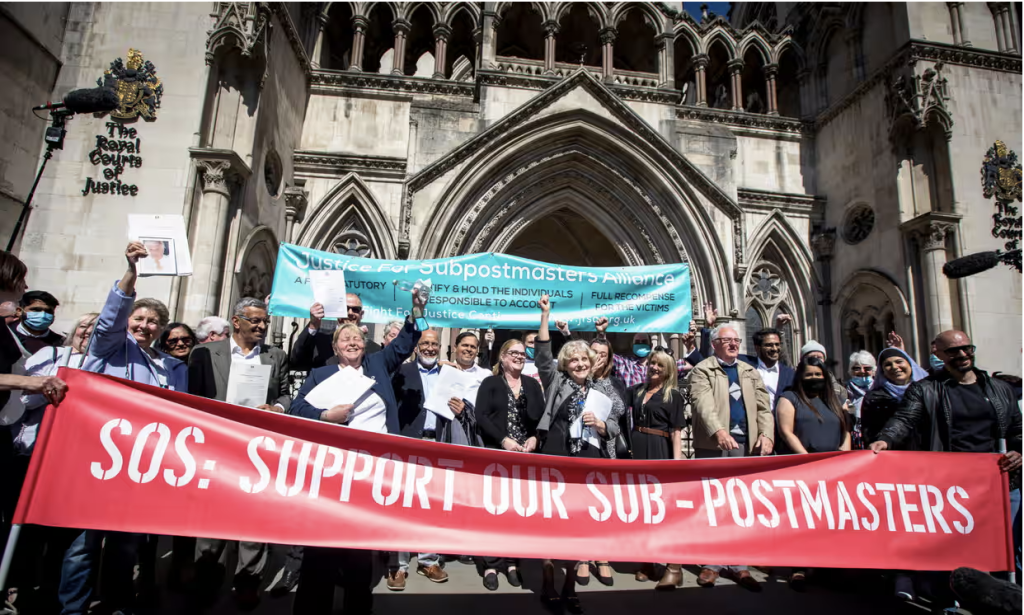The Post Office scandal and the decades-long quest by sub-postmasters to have their wrongful convictions overturned and be compensated for the thousands of pounds they lost because of Horizon IT system miscalculations, have hit headlines this week following the release of the ITV drama, Mr Bates V The Post Office. If you haven’t seen it and don’t know anything about The Post Office scandal, you can read more about it here. In this blog, we’ll be exploring the topic of trust and we’ll give you our 5 steps to building a culture of trust using EQ.
Between 1999 and 2015, The Post Office wrongly convicted over 900 sub postmasters. Reputations were damaged overnight.
Many lost their homes and livelihoods; some were sent to prison and at least 4 people are known to have taken their own lives. Many were made to pay back thousands of pounds to The Post Office in what has become one of the biggest miscarriages of justices in British history.
Although a public inquiry launched in 2021 is still ongoing, recent public outrage as a result of the drama, has forced Parliament to start looking at ways it can quickly provide redress and quash convictions. Paula Vennells, CEO of The Post Office between 2012 and 2015 has handed back her CBE, apologising for what happened during her tenure.
Issues were first raised in the late nineties about the Fujitsu software, but sub-postmasters were told “you’re the only one having these problems”.

Alan Bates, a sub postmaster affected by the scandal early on and who has led the campaign tirelessly and for many years, has expressed his shock at the lack of empathy or understanding when he first raised the issues with The Post Office as well as their unwillingness to investigate.
At the very heart of this story appears to be misguided belief in a system that fundamentally doesn’t work. Added to that is a failure to admit mistakes, to listen and act, and widespread mistrust of staff (or in this case franchise sub postmasters).
These feelings of powerlessness, a zapped optimism, questioning their own competence Zapped optimism, would have inevitably led to a culture of low trust. Trust, empathy, and communication are some of the factors that is crucial to ensuring that workplace cultures are effective.
When a colleague or client comes to us to express an issue, what can we as leaders, learn from this situation?
This is our guide to creating workplace cultures that are built on trust and understanding:
1. Effective Leaders for Effective Organisations
It starts at the top. Leaders set the tone for the organisation and should lead by example. Leaders should be approachable and have the self-awareness to demonstrate their trust in those they lead, as well as an understanding of the impact of their own actions and decisions.
2. Create Open Lines of Communication
Colleagues should be able to communicate all levels of the organisations in an open and honest way. This means having mechanisms in place for them to provide feedback, be it positive or constructive. Understanding the problems faced should give self-aware leaders an opportunity to collaborate with staff to correct anything issues that arise.
3. Empower People
Involve your people in decision-making processes when possible. This will create a sense of ownership and trust in the organisation’s direction. Confident colleagues service clients more effectively when they are trusted and empowered.
4. Invest in Development
Whilst it seems as though The Post Office spent a lot of money investing in an IT system that ultimately failed, they do not appear to have invested much in the development of staff handling the helpline. Many times, sub postmasters were told “you’re the only one”. Worse still, it appears that many were told to round-off or change amounts on their screens which led to significant shortfalls that they then had to clear themselves. The point we are making here is that if people are empowered, trusted, able to communicate, it may have led to helpline staff escalating the problems and the issues being identified and rectified.
5. Listen!
Honestly, it’s a basic but it is so often glossed over. Taking the time to listen to the problems will give you great intel as to what is working and what is not working. Change is only ever effectively brought about when leaders listen and take onboard the collective input.
There are many other key facets into creative emotionally effective organisations, these are just a few that spring to mind considering recent events at The Post Office. Our view is that 20 years of pain and misery could have been avoided if mechanisms had been in place for colleagues to raise issues and leaders to act in an organisation that should have placed trust in its sub postmasters.
In the meantime, we will await the output of the inquiry which is due to complete this year.
